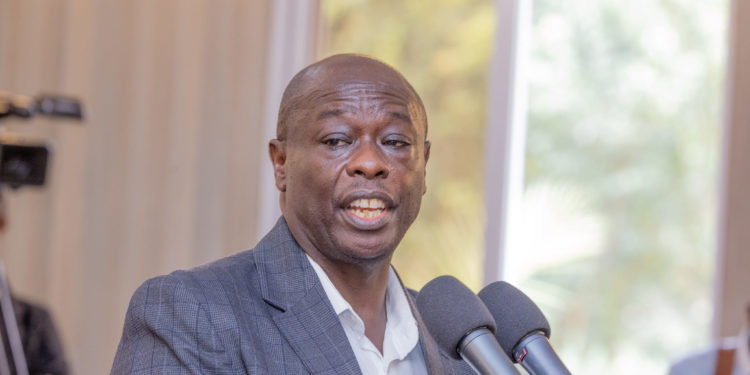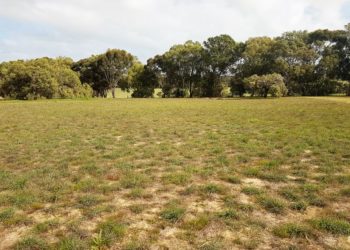Deputy President Rigathi Gachagua has categorically denied a series of allegations levelled against him, dismissing an impeachment motion as politically motivated and lacking in substance.
Speaking at a press conference at his official residence in Karen, Nairobi, Gachagua tackled accusations of graft, abuse of office, and interference in public procurement, asserting that none of the claims held merit.
“This impeachment motion is nothing more than a political fishing expedition. There is no evidence to support these wild accusations, and I will not resign from my position,” Gachagua stated, while maintaining that his integrity in public office remains intact.
The deputy president addressed specific accusations, including his alleged involvement in a controversial land deal involving Wamunyoro Investments and claims that his family had benefited from a procurement process at the Kenya Medical Supplies Authority (KEMSA). Gachagua provided detailed explanations and timelines, distancing himself from the issues and arguing that they predated his assumption of the deputy presidency.
Regarding the Munyro Investments land dispute, Gachagua explained that the matter had been adjudicated by the High Court, which ruled in favor of the investment firm before he took office. “I supplied all documents before I became Deputy President, and the matter was concluded by the High Court. The land belongs to Wamunyoro Investments Limited, and this decision is now under appeal,” he said.
Gachagua also refuted accusations of irregular procurement at KEMSA, where it was alleged that his son’s company had benefited from a KES 3.7 billion tender for malaria nets. He described the claims as “ridiculous,” emphasizing that his son’s firm, Crystal Kenya Limited, acted merely as a local agent for Shobikaa Impex, a global manufacturer of mosquito nets, and was not involved in the tendering process itself.
“No public funds were lost, and no nets were supplied. My only involvement was a single phone call to follow up on an issue raised by the investors, asking why their bid bond was not returned after they lost the tender,” he added. Gachagua also clarified that his company was not awarded any contracts, saying, “My son’s company did not win the tender; there was no interference on my part.”
The deputy president also responded to accusations surrounding costly renovations at his official residences in Karen and Mombasa, denying any personal involvement in the procurement processes or the contractors hired. Gachagua noted that the renovations had been approved by the government to “dignify the office” and ensure it was suitable for hosting international dignitaries.
“The renovations were necessary. The house was in a state of disrepair when I moved in. The roofs were leaking, toilets were blocked, and the borehole was broken. Parliament allocated funds for this, and the procurement was done by the relevant officers. The Auditor-General has cleared all expenditures related to these renovations,” he remarked.
On broader political matters, Gachagua offered a robust defense of his stance on political power-sharing within the Kenya Kwanza coalition. He referred to agreements signed by various political parties during the formation of the government, which he said had determined the allocation of positions in the administration. Gachagua dismissed criticism of his previous remarks about government being run like a company with shareholders, describing them as a factual representation of how political agreements were structured.
“I have never talked about sharing resources. I was talking about the distribution of government positions based on signed political agreements. For example, ANC and Ford Kenya were allocated 30% of government appointments, and this is documented,” he said, referencing the coalition’s power-sharing agreement.
Addressing accusations that he had undermined President William Ruto’s authority, particularly in relation to the eviction of residents along Nairobi’s rivers, Gachagua reiterated his commitment to upholding constitutional and human rights. He confirmed that he had insisted on fair compensation for those being evicted, stating, “I cannot and will not oversee forced, brutal evictions against the people of Kenya. We promised humane evictions, and I stand by that.”
Gachagua’s response to the impeachment motion also touched on his anti-drug and anti-illicit alcohol campaign, a key initiative during his tenure. He noted that this effort had yielded positive results across the country, despite allegations that his involvement in these campaigns was seen as undermining county governments. “We have made significant progress in fighting illicit alcohol and drugs. If I am to be impeached for that, so be it,” he said.
In his concluding remarks, Gachagua expressed confidence that he would be vindicated both in Parliament and in court, should the impeachment motion proceed. “This is not about me. It’s about overturning the will of 7.2 million Kenyans who elected me. I am ready to defend myself in Parliament and the courts. There is nothing in these allegations that meets the threshold for impeachment,” he declared.


















